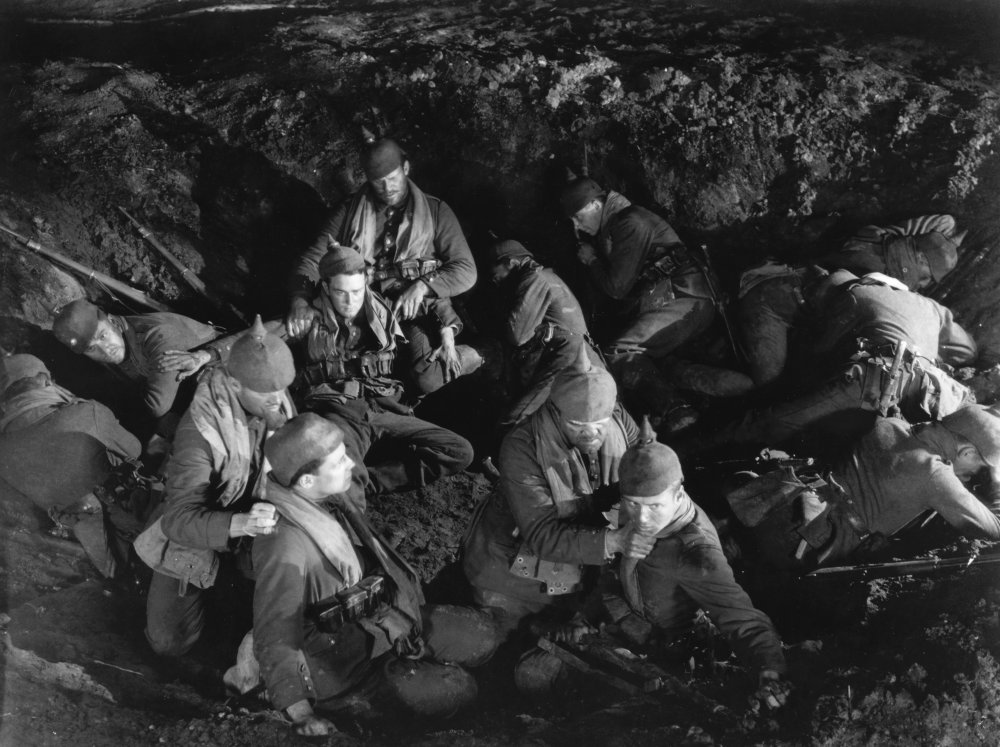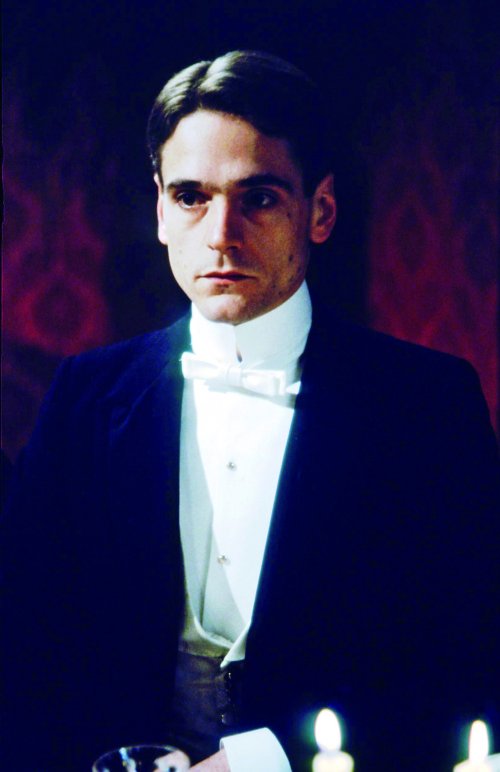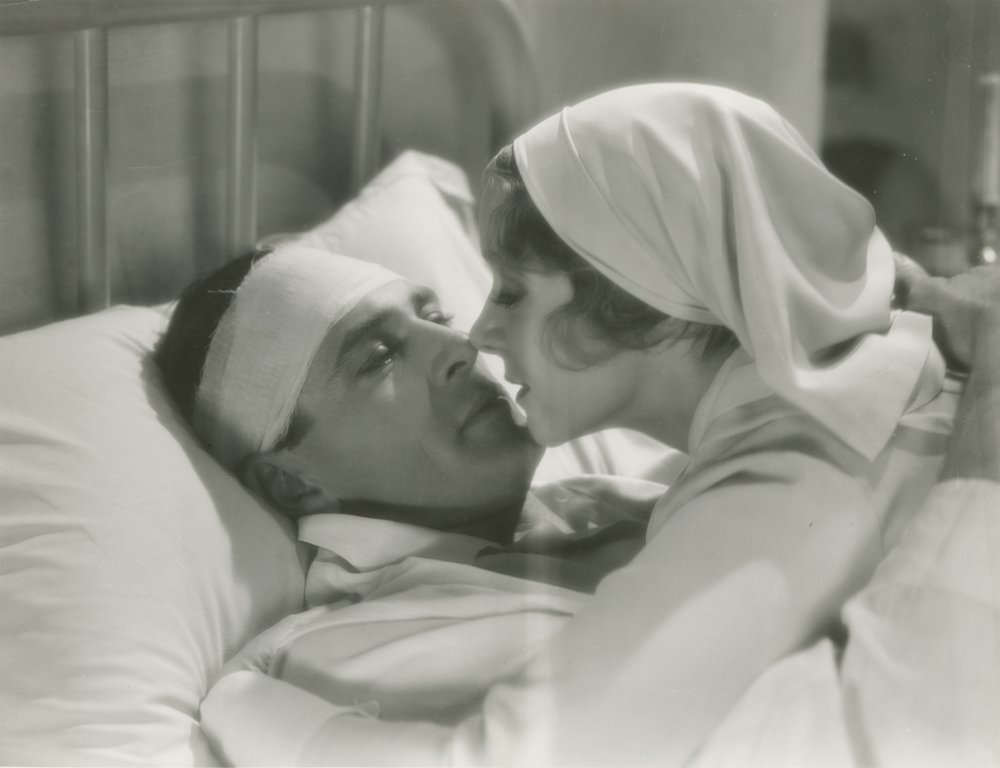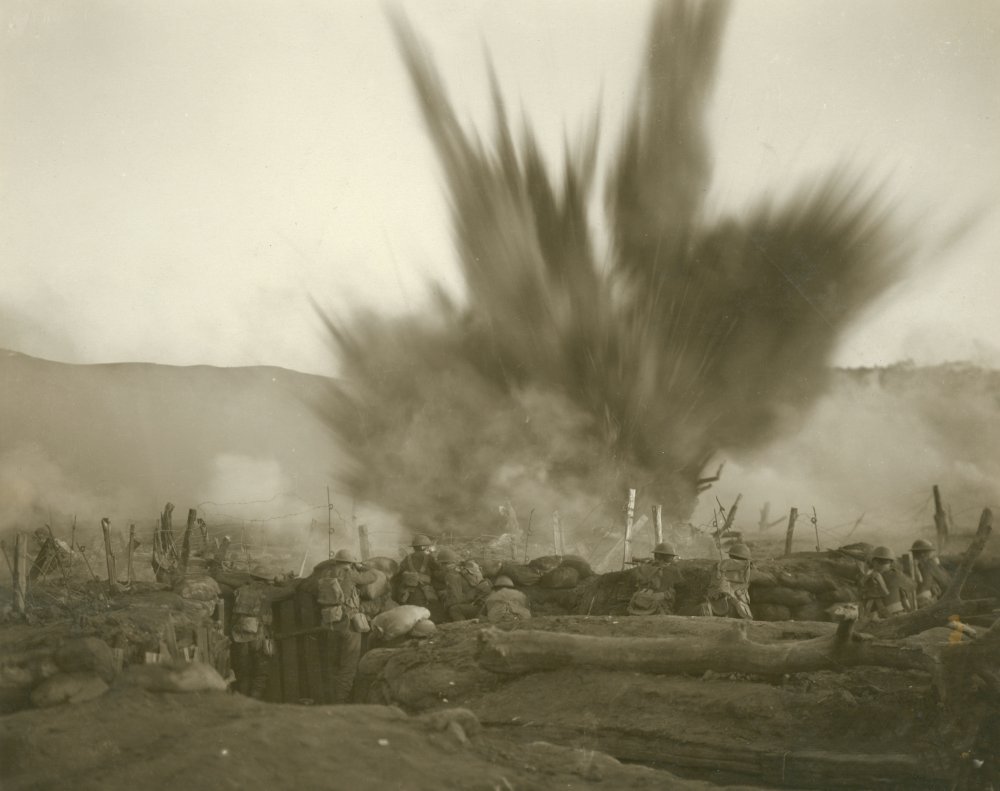
All Quiet on the Western Front (1930)
The BFI will mark the centenary of World War One with a wide-ranging series of programmes of key films, archive television dramas, rereleases and archival discoveries including a major three-part project for 2014, 2016 and 2018, The War That Changed Everything. Our landmark commemoration of the Great War includes some of the profoundest and most moving responses to the conflict, as successive generations have brought their own visions of war and its antecedents to large and small screens. As well as special events and screenings at BFI Southbank, audiences across Britain can get involved via a dedicated collection of content available to stream on the BFI Player and UK-wide cinema releases of key titles.
Later this year we’ll be revealing a major BFI National Archive restoration of a pivotal, dramatic, British silent film, ready for an autumn 2014 theatrical release.
Setting the scene for war: Edwardian Drama on the Small Screen

The Vosey Inheritance (1979)
We look at the backdrop to the war and set the scene for life in Britain during the pre-war period through an examination of small-screen interpretations of works by key Edwardian playwrights. For audiences attuned to the world of contemporary television recreations of the Edwardian past (Downton Abbey, Mr Selfridge, The Village), a programme of Edwardian Drama on the Small Screen will play at BFI Southbank during May 2014 offering a welcome and rare opportunity to see some of the best British television interpretations of works by playwrights which were widely performed in the years before World War One. The hugely influential ‘new drama’, which began as early as the 1890s, saw its finest flourishing with actor-writer-director Harley Granville-Barker, whose greatest plays Waste (1977) and The Voysey Inheritance (1979) both feature in the season. Masterworks by John Galsworthy, Oscar Wilde and J.M. Synge are also included.
The season is programmed in association with Screen Plays: Theatre Plays on British Television, an AHRC-funded research project from the School of Media, Arts and Design, University of Westminster.
On the Eve of War: Around the World in 80 Films
This investigation of the world before World War One will continue with a programme, On the Eve of War: Around the World in 80 Films, exploring the world on film captured prior to 1914, presented by Bryony Dixon, the BFI National Archive’s curator of silent film. It features a wonderful panoply of rare colour footage from a dizzying variety of locations: London, New York, Shanghai, Berlin, Paris. We also journey to remoter regions: far-flung Pacific islands, the camel routes of the Gobi desert in Mongolia, temple complexes in Rangoon, and more. These are films of an extraordinary rarity, featuring a number of titles that have been newly restored by the BFI National Archive.
Four programmes will be screening at BFI Southbank from 5 June. This programme will also be available on BFI Player, the BFI’s online video on demand service, later in the year.
The restorations were supported by The Eric Anker-Petersen Charity, The John S Cohen Foundation, The Headley Trust and The Radcliffe Trust.
The War That Changed Everything
This major cinema and online project will offer three programmes in 2014, 2016 and 2018. The first programme in June 2014 is Before the War, a programme of feature and shorter films that explore the world before World War One, giving a deeper context to the conflict that would follow. Many of these historically important films will be made available to audiences UK-wide through the BFI Player. Films made during the period will be screened alongside later visions of that historical moment, including titles such as Michael Haneke’s The White Ribbon (2009) and Alan Bridges’ The Shooting Party (1985).
In June 2016, The War That Changed Everything – Part 2: The Experience of War will focus on feature films and actuality footage which show the moving and often brutal realities of war on both sides, marking the centenary of the devastating Battle of the Somme. In 2018, The War That Changed Everything – Part 3: After the War will explore the cinema and actuality of the immediate post-war period and later film recreations of this key historical moment.
A Farewell to Arms – newly restored and going on UK-wide release from 30 May 2014

A Farewell to Arms (1932)
This new digital version of Frank Borzage’s Oscar-winning 1932 dramatisation of Ernest Hemingway’s novel has been restored by Lobster Films.
An impossibly handsome Gary Cooper stars as the debonair, somewhat cynical Lieutenant Frederic Henry, an American working in the ambulance brigade on the Italian Front during the War. Through a friend at the local hospital, Frederic meets Catherine Barkley (the petite, ethereal-looking Helen Hayes), an English nurse whose fiancé was killed at the Somme. He encounters her again on a double date, and what initially looks like a flirtatious, casual encounter and a one-night stand (which leaves Catherine in tears) develops into much more.
Hemingway’s celebrated novel, which established him as a major American writer, drew on his own experiences serving in Italy and some characters were based on real people. Remarkably frank – even for a pre-Code film – in its treatment of sex, A Farewell to Arms later fell foul of the Legion of Decency and the Production Code Administration, who condemned its ‘suggestive dialogue’, ‘lustful kissing’, ‘illicit sex’ and ‘lack of moral compensation’.
This new restoration of the full-length version is based on an original nitrate print belonging to producer David O. Selznick, who purchased remake rights to A Farewell to Arms in 1955.
Paths of Glory – new print on extended run at BFI Southbank until 15 May and additionally in selected cinemas nationwide

Paths of Glory (1957)
Adapting Humphrey Cobb’s novel to the screen, director Stanley Kubrick and his collaborators Calder Willingham and Jim Thompson set out to make a devastating anti-war statement, and they succeeded above and beyond the call of duty. In the third year of World War I, the erudite but morally bankrupt French general Broulard (Adolphe Menjou) orders his troops to seize the heavily fortified ‘Ant Hill’ from the Germans.
General Mireau (George MacReady) knows that this action will be suicidal, but he will sacrifice his men to enhance his own reputation. Against his better judgment, Colonel Dax (Kirk Douglas) leads the charge, and the results are appalling. When, after witnessing the slaughter of their comrades, a handful of the French troops refuse to leave the trenches, Mireau very nearly orders the artillery to fire on his own men. Still smarting from the defeat, Mireau cannot admit to himself that the attack was a bad idea from the outset: he convinces himself that loss of Ant Hill was due to the cowardice of his men.
A Night at the Cinema in 1914 – new archive compilation gets UK-wide release from 1 August 2014
One hundred years on, this special compilation from the BFI National Archive recreates the glorious miscellany of comedies, dramas, travelogues and newsreels which would have constituted a typical night out in 1914, including a comic short about a face-pulling competition, a sensational episode of The Perils of Pauline, scenes of Allied troops celebrating Christmas at the Front, and an early sighting of one of cinema’s greatest icons…
Each year of the centenary of World War One we will be adding new content, often of exceptional rarity, to the BFI Player. These films tell the story of how British cinema helped inform, educate and entertain the public during the course of the conflict, through news, cartoons, information films, drama and comedy.
This archive compilation has a new musical accompaniment by Stephen Horne.
2015
100 Years Ago: 1915
Our season continues in 2015 will a look at the year 1915, with contemporary films including Troops in the Snow in which members of the Public Schools’ Battalion throw snowballs; Clapton’s Khaki Team, a newsreel showing 10 Clapton Orient players enlisting for the ‘Footballer’s Battalion’ after playing their last match and Pimple Has One, in which the Britain’s favourite film comedian Pimple finds he has to censor his own behaviour…
2016
100 Years Ago: 1916
Films from 1916 will include the gorgeous East Is East, a feature film in which East End sweethearts, Florence Turner and Henry Edwards fall in love in the hop fields of Kent; Tom Brown’s Schooldays, an adaptation of the classic novel; and Zeppelin Raid on Paris, a newsreel showing shots of bomb damage in Paris after an air raid.

Journey's End (1930)
The War That Changed Everything – Part 2: The Experience of War
The harsh realities of war on both sides will be commemorated with titles such as The Big Parade (King Vidor, 1925), Journey’s End (James Whale, 1930) and Oh! What a Lovely War (Richard Attenborough, 1969).
2017
100 Years Ago: 1917
Films from 1917 will include Scottish Women’s Hospital, providing glimpses of the work of the hospital at Villers-Cotterêts, France, including details of a shrapnel-removing operation; Girl Gardeners at Work, a newsreel showing the college at Glynde, where women grow food for the hospitals at Brighton and Eastbourne; and Abdication of the Czar, a newsreel showing the arrival of the Czar on the eastern front following his abdication.
2018
100 Years Ago: 1918
Films from 1918 will include The Blunders of Mr Butterbun, a comedy in which Mr Butterbun (Lupino Lane) presides over the appeals of a series of would-be WWI draft evaders; Broken in the Wars, a public information film about a loan scheme for discharged soldiers; and Old Mother Hubbard in which the nursery rhyme is put to new use to encourage the nation to do its bit for the war effort.
The War That Changed Everything – Part 3: After the War
The programme concludes with a season of films about life in the aftermath of the First World War, with prospective titles including Dr Mabuse: The Gambler (Fritz Lang, 1922) and The Last Flight (William Dieterle, 1931).




